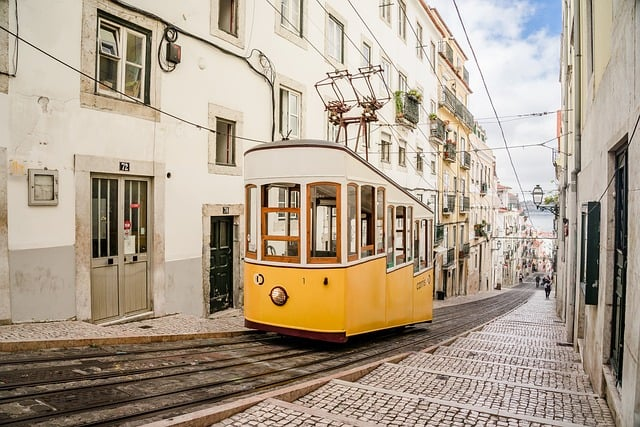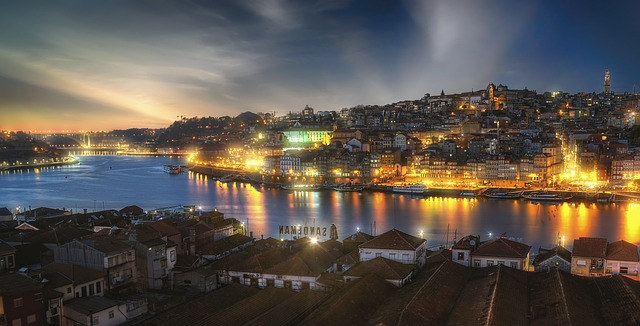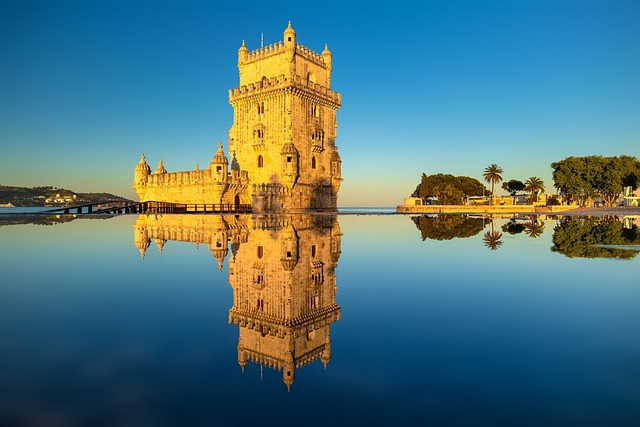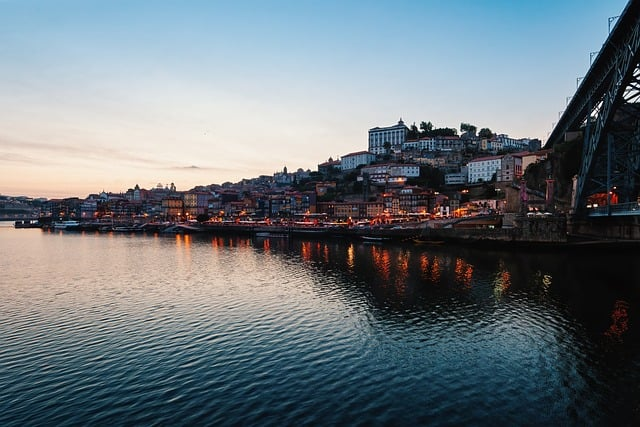The cost of living in Portugal is generally considered to be lower than in many Western European countries, although it can vary significantly between urban and rural areas. Compared to the USA and the UK, Portugal offers a lower cost of living, particularly in housing and healthcare.
For a single person, monthly expenses in Portugal range from €800 to €1200, encompassing rent, utilities, groceries, transportation, and entertainment. Urban areas such as Lisbon and Porto typically have higher living costs. Coastal regions like the Algarve incur greater housing expenses due to their tourist appeal. Various factors, including accommodation types, healthcare systems, lifestyle preferences, and exchange rates, influence the overall cost of living.
In Lisbon, a one-bedroom apartment in the city center could cost €700 to €1200 per month, with expenses for utilities, groceries, transportation, and entertainment adding to the tally. Porto offers a slightly lower cost of living, while the Algarve, despite its popularity among tourists, still provides good value for money.
To manage expenses effectively in Portugal, researching housing options, utilizing public transport, cooking at home, taking advantage of free activities, and comparing prices are recommended strategies. Travelling as couples? Here are Best Places To Go In Portugal for Couples

What Is the Average Cost of Living in Portugal?
The average cost of living in Portugal varies depending on the region and lifestyle. Here is the rough estimate for a typical month excluding rent.
-
For a single person: On average, the monthly expenses (excluding rent) range from €600 to €1,200. This includes food, transportation, utilities, and leisure activities.
-
For a family of four: The costs naturally increase, and you could expect to spend between €2,100 and €3,000 per month on similar expenses.
These figures are averages and can vary based on lifestyle choices, the city or area of residence, and personal spending habits. For example, living in major cities like Lisbon or Porto would be on the higher end of this range due to higher costs for dining, entertainment, and transportation, compared to smaller towns or rural areas.
Portugal stands out as an attractive destination for individuals seeking an affordable yet enriching lifestyle in Western Europe. For a single person, monthly expenses typically fall within the range of €800 to €1200, covering essential aspects of living such as rent, utilities, groceries, transportation, and entertainment. This relatively modest cost of living makes Portugal an appealing choice for expatriates and locals alike, especially when compared to the higher expenses prevalent in many other Western European countries.
While the actual cost of living in Portugal varies depending on factors such as location and individual preferences, the country is generally known for its affordability across various aspects of daily life. Whether one chooses to reside in the vibrant cities of Lisbon or Porto, or the tranquil coastal regions of the Algarve, Portugal offers a high quality of life without the financial strain often associated with Western European living. Overall, Portugal's reputation for affordable housing, healthcare, and dining options makes it an attractive choice for those seeking a balance between cost and quality of life in Europe.

Cost of Living in Portugal per Month
Cost of living in Portugal per month falls within the range of €800 to €1200 per month. Generally, the monthly cost of living for a single individual in Portugal falls within the range of €600 to €1000 per month. For a single person considering Portugal as their next home, understanding the average monthly expenses is crucial for financial planning. This estimate encompasses essential expenditures such as rent, utilities, groceries, transportation, and entertainment.
Living in urban centers like Lisbon or Porto entail higher expenses compared to rural areas. Similarly, coastal regions such as the Algarve have different cost dynamics due to their popularity among tourists and expatriates.
Portugal is generally recognized for its affordable living standards when compared to many other Western European countries. Whether one prefers the bustling energy of city life or the serene tranquility of coastal communities, Portugal offers a balance of affordability and quality of life that appeals to a wide range of individuals seeking to call it home.
However, it's essential to note that these costs are approximate and subject to variation based on individual lifestyle preferences and the chosen region of residence. For instance, living in urban centers like Lisbon or Porto may entail higher expenses compared to rural areas. Similarly, coastal regions such as the Algarve might have different cost dynamics due to their popularity among tourists and expatriates.
If you're staying near Madeira, check out Best Beaches in Madeira, Portugal To Visit In Portugal

What are the Key Factors That Affect the Cost of Living in Portugal?
Key factors that significantly affect the cost of living in Portugal are location, accommodation, healthcare, lifestyle choices. Let’s understand these factors in more detail.
1. Location
Understanding how location impacts the cost of living in Portugal is crucial. Urban areas like Lisbon and Porto are more expensive due to higher demand for housing and services, while rural areas offer a more cost-effective lifestyle. The specific region can also affect prices, with tourist hotspots generally commanding a premium.
-
Urban vs. Rural: Costs in major cities are higher than in rural areas, reflecting the higher cost of living and property prices.
-
Proximity to Tourist Areas: Living near tourist areas can increase costs for dining and shopping due to higher demand.
-
North vs. South: The northern regions are generally more affordable than the southern parts of Portugal, particularly compared to the tourist-favored Algarve.
2. Accommodation
Accommodation is often the largest monthly expense in Portugal, with significant variations based on location, type, and market conditions. Understanding these options can help manage your budget effectively.
-
Type of Housing: Options range from apartments and detached homes to shared housing, each with different price points.
-
Rental vs. Ownership: Renting can be less costly in the short term, but owning property may be more economically sensible long term.
-
Age and Condition of Property: Older or poorly maintained properties may have lower rent but higher utility costs due to less efficient energy use.
3. Healthcare
Healthcare costs in Portugal are influenced by whether you use the public system, private insurance, or a combination of both. Portugal offers a high standard of affordable healthcare, but options vary.
-
Public vs. Private: The public healthcare system is low-cost and funded through social security, but private health insurance can offer quicker access and wider choice of services.
-
Prescription Costs: Medications can be more affordable if covered under the public health system; otherwise, private prescriptions can be costly.
-
Healthcare Services in Rural vs. Urban Areas: Access to specialists and certain treatments might be limited in rural areas compared to cities.
4. Lifestyle Choices
Your lifestyle choices have a direct impact on your monthly expenses in Portugal. Everything from dining out to leisure activities can affect your budget.
-
Dining and Entertainment: Frequent dining out and entertainment can significantly increase monthly expenses.
-
Transportation Choices: Using public transportation is cheaper than owning and maintaining a car, especially in urban areas.
-
Fitness and Recreation: Memberships to gyms or clubs can add to your costs, depending on the facilities' quality and location.
5. Exchange Rates
For expatriates or those conducting business internationally, exchange rates can dramatically affect the cost of living in Portugal by influencing the value of your income and expenses in local currency.
-
Income in Foreign Currency: Fluctuations in exchange rates can impact the actual value of money earned abroad when converted to euros.
-
Purchasing Power: Changes in the euro's strength can affect how much imported goods cost.
-
Financial Planning: Understanding and planning for exchange rate fluctuations can help manage overall expenses more effectively.

Cost of Living in Lisbon Portugal
Living in Lisbon, Portugal, involves various costs that can influence your overall budget. As the capital city and a popular destination for tourists and expats, Lisbon is one of the more expensive cities in Portugal. Here’s a breakdown of the typical cost of living elements.
-
Rent: Renting in Lisbon can be quite expensive compared to other parts of Portugal. A one-bedroom apartment in the city center might cost between €1,000 and €1,500 per month, while outside the center the prices could range from €700 to €1,100.
-
Buying: Purchasing property also tends to be pricey, with prices per square meter in the city center often exceeding €4,000.
-
Utilities: For an 85m² apartment, utilities (electricity, heating, cooling, water, garbage) typically cost around €100 to €150 per month, depending on usage.
-
Internet: A broadband internet connection usually costs about €30 to €50 per month.
-
Groceries: Monthly groceries for one person may range from €200 to €300, depending on dietary habits and preference for local vs. imported products.
-
Dining out: A meal at an inexpensive restaurant might cost around €10 to €15, while a three-course meal at a mid-range restaurant can cost between €30 and €50 per person.
-
Public Transportation: A monthly public transport pass in Lisbon costs about €40.
-
Taxis and Rideshares: Starting rates for taxis are generally around €3.50, with additional costs per kilometer.
-
Public Healthcare: Residents have access to subsidized public healthcare, but it's common to have private insurance for quicker access and broader coverage, costing about €20 to €50 per month.
-
Activities: Cinema tickets cost around €8, and a gym membership typically ranges from €30 to €50 per month.
-
Single person: Excluding rent, a single person's monthly expenses might range from €1,000 to €1,500.
Living in Lisbon offers a vibrant urban experience, but it requires a higher budget relative to other areas of Portugal due to its popularity and the wide range of services and amenities available. If you're staying here, check out Safest Neighborhoods in Lisbon - Best Areas to Stay in Lisbon

Cost of Living in Porto Portugal
Porto, Portugal's second-largest city, offers a slightly more affordable cost of living compared to Lisbon while maintaining a high quality of life. Rent for a one-bedroom apartment in the city center ranges from €500 to €900, making housing relatively accessible compared to larger metropolitan areas. Utilities, covering essential services like electricity and water, typically amount to €80 to €150 per month, ensuring basic living needs are met at reasonable costs. Groceries expenses vary between €120 and €250, accommodating diverse dietary preferences and shopping habits.
Transportation costs, including public transport or fuel for private vehicles, fall within the range of €25 to €60 monthly, facilitating convenient mobility within the city. Dining out and entertainment expenses range from €100 to €300, offering opportunities for socializing and leisure activities without straining the budget.
These estimates provide valuable insights for individuals considering living in Porto, highlighting the city's affordability relative to other urban centers in Portugal. However, it's important to recognize that actual expenses may vary based on factors such as location within the city, car insurance, and individual lifestyle choices.
-
Rent for a one-bedroom apartment in the city center: €500 - €900
-
Utilities: €80 - €150
-
Groceries: €120 - €250
-
Transportation: €25 - €60
-
Dining out and entertainment: €100 - €300
Again, these figures are approximate and may vary based on factors such as location and lifestyle preferences.
Cost of Living in Algarve Portugal
Living in the Algarve, a beautiful area in the south of Portugal famous for its gorgeous beaches and nice weather, has a cost of living that's a bit different from Lisbon. The Algarve is a favorite spot for retirees and expats because it's generally cheaper, although the more popular spots can be more expensive. Here’s a look at the typical costs you might expect if you decide to live there.
-
Rent: Renting in the Algarve can be more affordable than Lisbon, especially outside of the peak tourist season. A one-bedroom apartment in the city center might cost between €600 and €1,000 per month, while outside the center, prices could range from €500 to €800.
-
Buying: Buying property is also popular in the Algarve, with prices per square meter varying greatly depending on proximity to the coast. On average, prices might be slightly lower than in Lisbon but can spike in sought-after beachfront locations.
-
Utilities: For an 85m² apartment, monthly utilities (including electricity, heating, cooling, water, and garbage) typically cost around €80 to €130, which can be lower than in Lisbon.
-
Internet: A standard broadband internet package costs approximately €30 to €50 per month.
-
Groceries: Expect to spend about €150 to €250 per month on groceries per person, depending on lifestyle and whether you buy local or imported products.
-
Dining out: A meal in an inexpensive restaurant might cost around €8 to €15, while a three-course meal at a mid-range restaurant can range from €25 to €40 per person.
-
Public Transportation: Public transport options are more limited in the Algarve compared to Lisbon, and many residents choose to have a car. A monthly public transport pass (where available) costs about €30.
-
Car Expenses: Running a car can add significantly to expenses due to fuel, maintenance, and insurance.
-
Public Healthcare: As with the rest of Portugal, public healthcare is accessible and affordable. However, private health insurance is advisable for more immediate and comprehensive coverage, generally costing about €20 to €50 per month.
-
Activities: The Algarve offers plenty of low-cost or free leisure activities, especially outdoor ones like hiking and beach going. Cinema tickets cost about €7, and gym memberships are typically in the range of €25 to €40 per month.
The Algarve offers a more relaxed pace of life with a focus on outdoor and leisure activities, making it a particularly attractive destination for those looking to enjoy a slower lifestyle in a beautiful setting. The cost of living can vary significantly based on exact location within the Algarve and personal lifestyle choices.
Cost of Living in Portugal vs USA
Compared to the United States, Portugal generally offers a lower cost of living, especially in terms of housing and healthcare costs. While certain goods and services may be cheaper in Portugal, it's essential to consider factors such as taxation, currency exchange rates, and income levels when making comparisons.
Cost of Living in Portugal vs UK
Generally, Portugal is known to be more affordable than the UK, particularly in terms of housing, groceries, and some services. Comparing the cost of living between Portugal and the UK reveals significant differences, influenced by various economic factors and lifestyle choices. Here's a detailed look at how these two countries stack up in key areas of everyday expenses.
1. Housing
When comparing housing costs between Portugal and the UK, Portugal typically offers more affordable options. Rent and property prices are much lower in Portugal, making it an attractive choice for those looking to reduce living expenses or invest in property.
-
Portugal: Rent and property prices in Portugal are substantially lower than in most parts of the UK. For instance, renting a one-bedroom apartment in the city center in Portugal might cost between €600 and €1,200, depending on the city, while in the UK, similar accommodation in cities like London could cost from £1,200 to over £2,000.
-
UK: The UK, especially London and the South East, has some of the highest rents and property prices in Europe. Even outside these areas, prices generally remain higher than in Portugal.
2. Utilities and Internet
Utilities and internet services show some cost differences between the two countries. In Portugal, utility bills (including electricity, water, and gas) tend to be lower, while internet costs are similar but slightly cheaper than in the UK.
-
Portugal: Utilities (electricity, heating, cooling, water, garbage) are cheaper, costing around €100 to €200 per month for an average apartment. Internet is similarly priced between the two countries, typically around €30 to €50 per month in Portugal.
-
UK: Utilities can be quite high, especially heating costs during the winter, averaging £100 to £150. Internet costs are comparable to Portugal, generally starting at around £30 per month.
3. Food and Groceries
Grocery shopping and dining out are generally cheaper in Portugal. The country offers a variety of local produce at lower prices, and eating out is more budget-friendly compared to the UK, where prices are higher both in supermarkets and restaurants.
-
Portugal: Groceries tend to be cheaper in Portugal, with local markets and stores offering good-quality local produce at lower prices. Dining out is also more affordable with a decent meal in an inexpensive restaurant costing between €8 and €15.
-
UK: Food expenses, particularly in supermarkets, can be higher. Eating out is also more costly, with a simple meal starting around £10 to £15 outside of London and significantly more within the capital.
4. Transportation
Transportation costs can vary significantly. In Portugal, public transport is quite affordable, especially in major cities, whereas in the UK, especially in London, public transportation can be quite expensive. Car ownership costs are relatively similar in both countries.
-
Portugal: Public transport is affordable, with monthly passes costing about €40 in cities like Lisbon. Owning a car is more expensive due to high fuel costs.
-
UK: Public transport, especially in London with the Underground, can be pricey. A monthly pass in London can cost over £150. Fuel and car ownership costs are similar to Portugal but can feel more expensive due to higher insurance premiums and maintenance costs.
5. Healthcare
Healthcare in Portugal is known for being more affordable, with low-cost public services and reasonably priced private options. The UK offers free public healthcare through the NHS, but private healthcare can be expensive, making Portugal a favorable option for healthcare affordability.
-
Portugal: Both public and private healthcare are generally more affordable in Portugal. Public healthcare is accessible at low cost through contributions to social security.
-
UK: The NHS provides free public healthcare, but private healthcare can be expensive. Prescription costs are capped in the UK, which can make some medications more affordable compared to Portugal.
6. Lifestyle and Leisure
Leisure and lifestyle costs in Portugal are generally lower than in the UK. This includes gym memberships, entertainment, and recreational activities, partly due to the favorable climate that encourages outdoor activities year-round.
-
Portugal: Leisure activities, including gym memberships and cinema tickets, are typically less expensive. The climate also allows for more outdoor activities year-round, which can reduce entertainment expenses.
-
UK: Leisure costs can be higher, particularly in terms of memberships and tickets. The colder climate may limit some outdoor activities, leading to higher spending on indoor entertainment.
Tips for Managing Expenses in Portugal
Effectively managing expenses is crucial for maintaining a comfortable lifestyle in Portugal without overspending. To achieve this, it's essential to conduct thorough research when it comes to housing options. Exploring different neighborhoods and types of accommodation can help you find a place that fits your budget and lifestyle preferences.
Additionally, making use of Portugal's efficient public transportation system can significantly reduce commuting costs compared to owning a car. Cooking at home instead of dining out is another effective way to save money on food expenses. By purchasing groceries and preparing meals yourself, you not only cut costs but also have greater control over ingredients and portion sizes.
Furthermore, taking advantage of the numerous free or low-cost recreational activities in Portugal, such as hiking, beach outings, and cultural events, can provide entertainment without putting a strain on your finances. Finally, it's essential to compare prices before making any purchases to ensure that you're getting the best value for your money. By following these tips, you can effectively manage your expenses and enjoy a fulfilling lifestyle in Portugal.
-
Research Housing Options: Explore different neighborhoods and housing types to find accommodation that fits your budget and preferences.
-
Use Public Transport: Portugal has an efficient public transportation system, which can help you save money on commuting costs.
-
Cook at Home: While dining out can be enjoyable, cooking at home can save you money on food expenses.
-
Take Advantage of Free Activities: Portugal offers numerous free or low-cost recreational activities, such as hiking, beach outings, and cultural events.
-
Compare Prices: Before making purchases, compare prices from different stores and providers to ensure you're getting the best deal.
FAQs On Cost of Living in Portugal
Is Portugal an expensive country to live in?
Overall, Portugal offers a relatively affordable cost of living compared to many other European countries, particularly in terms comparing living costs of housing and healthcare.
What is the estimated monthly costs to live comfortably in Portugal?
The amount of money needed to live comfortably in Portugal varies depending on your lifestyle and location. However, a monthly budget of €800 to €1200 for a single person is typically sufficient to cover basic expenses.
Are utilities expensive in Portugal?
Utilities such as electricity, water, and gas are reasonably priced in Portugal, although costs may vary depending on consumption and location.
Is healthcare expensive in Portugal?
Portugal has both public health insurance and private healthcare systems. While public healthcare is generally affordable, private healthcare services may incur higher costs.
What is the average rent in Portugal?
Rent prices in Portugal vary depending on location and property type. On average, expect to pay between €400 and €1200 per month for accommodation, with higher costs in major cities like Lisbon and Porto.
